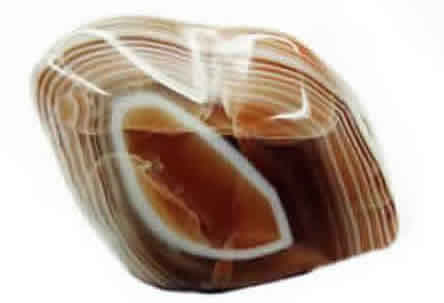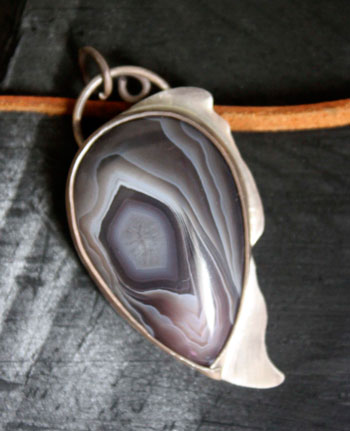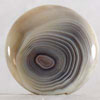- Jewelry
- Inspiration
- Our imagination
- Birthstones
- Celebrating with Eternal Flowers
- Druids and druidesses
- Flower meanings
- History, archeology jewelry
- History and healing properties of metals
- History and healing properties of stone
- Illumination jewelry
- Japanese symbols
- Maya calendar jewelry
- Stone color symbolism
- Stones catalogue
- Wedding anniversaries
- Searches a theme on the site
- Good Deals
- Paintings
- About
- Contact
JEWELRY
- Anklet
- Bracelets
- Brooches
- Cufflinks
- Earrings
- Pendants & Necklaces
- Rings
- Draw your jewelry
- How to clean your jewel
- Metal we used
INSPIRATION
- Our imagination
- Birthstones
- Celebrating with Eternal Flowers
- Druids and druidesses
- Flower meanings
- History, archeology jewelry
- History and healing properties of metals
- History and healing properties stones
- Illumination jewelry
- Japanese symbols
- Maya calendar jewelry
- Stone color symbolism
- Stones Catalogue
- Wedding anniversaries
- Searches a theme on the site

Botswana agate: history, healing properties and lithotherapy
Botswana agate properties

Originating from Africa, Botswana agate is named after the country where it is mined.
This particular quartz, Botswana agate, is composed of parallel, wavy, or concentric bands, offering a captivating diversity of colors that often evoke natural works of art. This stone forms under specific geological conditions, primarily within volcanic cavities. Over time, silica-rich mineral solutions infiltrate these cavities, depositing in successive layers. It is this process of repeated mineral deposits, subjected to variations in temperature and pressure, that gives rise to the distinctive bands of Botswana agate. Each layer represents a precise moment in the stone’s geological history, capturing changes in the chemical composition of the solutions present during its formation. These chemical variations, influenced by elements such as iron, manganese, or titanium, are responsible for the unique and mesmerizing patterns observed in each specimen.
Botswana agate is particularly renowned for its subtle chromatic gradation, where delicate shades of white and gray intertwine harmoniously. These soft hues create a soothing visual palette, often compared to misty landscapes or cloudy skies. However, the beauty of this stone is not limited to these classic colors. Indeed, some rare varieties of Botswana agate display hints of pink, brown, or even purple, adding an extra depth to its chromatic diversity. These colored inclusions, though less common, are particularly sought after by collectors and gemstone enthusiasts.
Certain pieces of Botswana agate feature patterns so intricate and natural that they seem to represent miniature landscapes, such as mountains, rivers, or forests. These varieties, often referred to as "landscape agate," are especially prized for their ability to evoke nature in all its splendor, transforming each stone into a unique work of art shaped by the earth over millennia.
History and legends about the Botswana agate
More than 5,000 years ago, the Phoenicians, Assyrians, and Sumerians used agate, this hard and uniquely beautiful siliceous rock, to carve sophisticated ornamental pieces. These ancient civilizations regarded agate as a stone endowed with protective and mystical virtues. The artisans of the time crafted seals, talismans, and jewelry from agate, the intricate workmanship of which reflected the cultural and spiritual significance of this precious stone.
In ancient Egypt, agate held a prominent place in the creation of amulets, particularly in the form of sacred scarabs. These scarabs, symbols of strength, protection, and regeneration, were worn by the living and buried with the deceased to protect them in the afterlife. The natural patterns of agate, representing eternity and stability, enhanced the power of these amulets.
In Africa, particularly in Botswana, Botswana agate was highly valued in fertility rituals. It was often used by healers and midwives to bless pregnant women, ensuring a healthy pregnancy and vigorous offspring. This stone was also associated with sexual vitality, symbolizing the life force and the continuity of generations. Over time, Botswana agate became a sacred stone, integrated into local spiritual practices.
Even today, in Botswana, some shamans regard agate as an essential protective stone. It is used in complex rituals to invoke ancestral spirits, seek their protection and guidance, and maintain harmony between the living and the spiritual world. This deep connection between Botswana agate and local spiritual practices makes it a bridge between the material and spiritual worlds, a guardian of traditions and ancestral beliefs.
Middle Eastern civilizations, fascinated by the beauty and complexity of agates, paid special attention to specimens with bands forming an eye. These agates, nicknamed "divine eyes," were perceived as powerful talismans capable of repelling harmful influences and protecting their bearer from physical and spiritual harm. These stones were often consecrated in temples and offered to the gods to ensure the protection of crops and the prosperity of communities
Mines: Botswana, Brazil, the USA
Healing properties and benefits of the Botswana agate
Throughout human history, Botswana agate has been surrounded by numerous interpretations and symbolic meanings. The information presented here is shared from a cultural and historical perspective, aiming to illustrate the relationship that different civilizations have had with this stone over the centuries. It is part of a documentary and historical approach and does not constitute any therapeutic or medical recommendation, nor does it reflect our personal beliefs.
- This natural gem has been associated with soothing the nervous system and supporting the body’s detoxification.
- Botswana agate has been seen as a support for reducing stress, depression, and anxiety.
- Some traditions suggest a symbolic role in helping to overcome certain dependencies, such as tobacco.
- This unique stone is believed symbolically to repel spiders.
- It has been considered as symbolic support for alleviating sexual dysfunctions.
- Botswana agate has been linked to improved oxygen assimilation in the body.
- It is also connected to skin purification, promoting the elimination of toxins.
- Finally, it shares the general qualities attributed to agates, traditionally recognized for supporting emotional and physical balance.
 Please note that all healing properties attributed to stones come from ancient traditions and various cultural sources. This information is provided for informational purposes only and does not constitute medical advice. In case of any health concerns, it is recommended to consult a qualified professional.
Please note that all healing properties attributed to stones come from ancient traditions and various cultural sources. This information is provided for informational purposes only and does not constitute medical advice. In case of any health concerns, it is recommended to consult a qualified professional.
Botswana agate jewelry samples
To learn more about litotherapy, we recommend you the following books:




